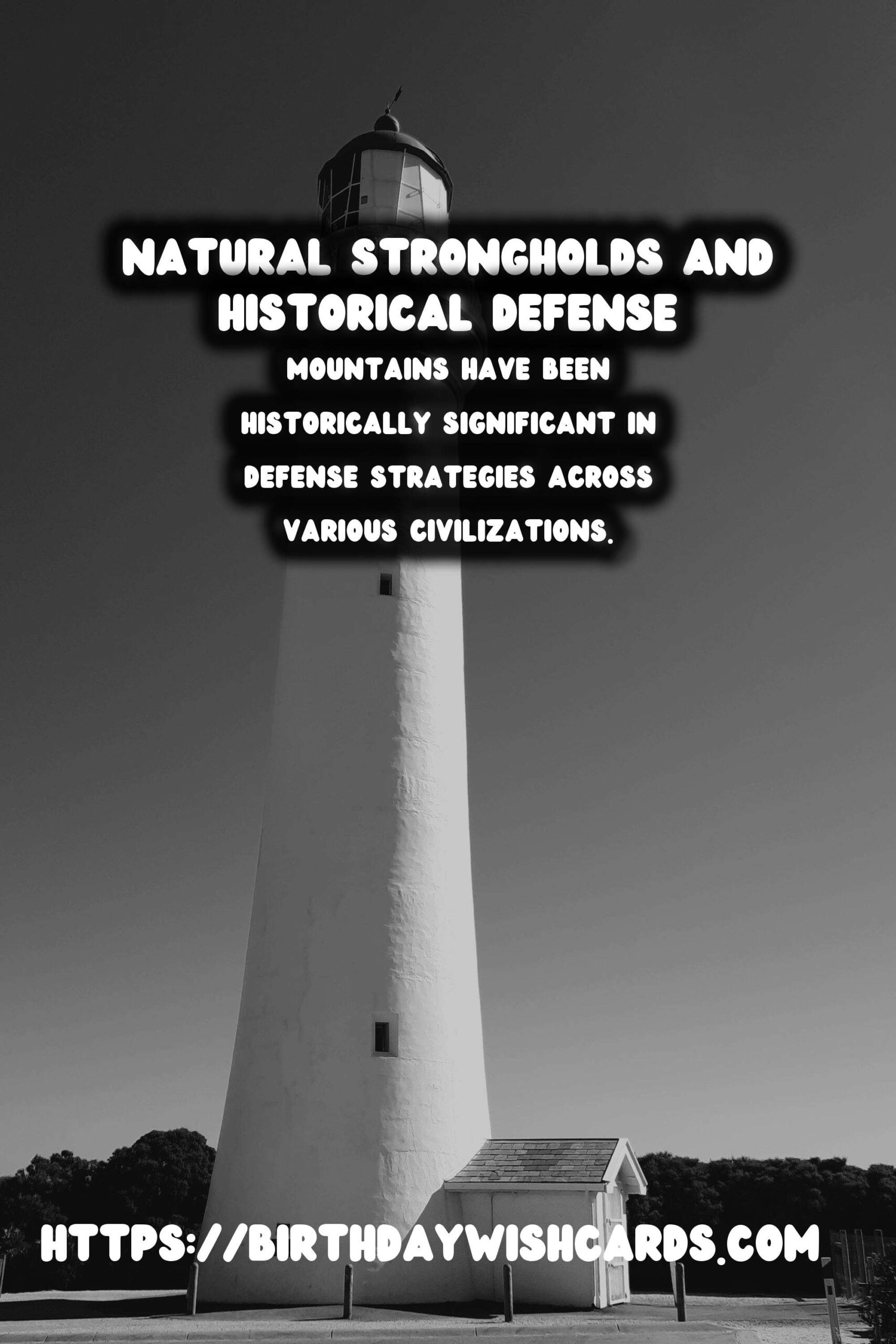
Mountains have been historically significant in defense strategies across various civilizations. Their natural barriers provided tactical advantages to those who understood how to leverage them effectively. From ancient times to medieval warfare, mountain ranges have stood as formidable obstacles and strategic strongholds, ensuring the defense and survival of whole communities.
The Natural Advantage of Mountains
Mountains offer numerous defensive advantages due to their nature-imposed constraints on movement and visibility. Historically, they served as natural fortifications, protecting regions from invasions. Due to rugged terrains, large armies struggled with mobility and logistics, making the task of invasion considerably more challenging.
One of the most significant benefits mountains offered was their height. This height provided defenders with a vantage point, allowing them to spot advancing armies from a distance and develop counter-strategies. Moreover, the effort required to ascend steep slopes often left attacking forces vulnerable and fatigued, diminishing their fighting capabilities.
Mountains in Ancient and Medieval Defense
Throughout history, several empires and small states used mountainous regions to their advantage. The Greeks utilized the mountainous terrain to defend against Persian invasions effectively. These geographical features were instrumental in notable battles, such as the Battle of Thermopylae.
Similarly, in medieval Europe, mountain ranges like the Alps and the Pyrenees provided natural barriers, shaping the political landscape of the region. The Swiss, for example, effectively used the Alps to deter invasions, preserving their sovereignty against larger armies.
In Asia, the Himalayas played a crucial role in protecting ancient Indian civilizations from northern invasions. This formidable range made any incursion perilous, acting as a natural boundary that safeguarded the subcontinent’s northern frontiers.
Case Studies of Mountain-Enabled Defense
Two exemplary cases showcase the defensive power of mountains: the Inca Empire in South America and the Georgian Kingdom in the Caucasus. The Inca, with their heartland nestled in the Andes, developed extensive infrastructure to manage their empire, including roads and terraces skillfully adapted to mountainous terrains. Despite external threats, they effectively used their knowledge of this rugged landscape to maintain control over vast regions.
In the Caucasus, the Georgian Kingdom utilized the region’s rugged terrain to resist numerous invasions. Their understanding of mountainous warfare allowed them to maintain their independence across centuries, despite being surrounded by larger, more powerful empires.
Modern Implications of Mountainous Defense
Even in modern military strategy, mountains play a vital role. During both World Wars, mountain ranges served as strategic defensive positions, offering shelter and tactical vantage points for various military campaigns. Today, they continue to be factored into strategic defense planning due to their inherent advantages in controlling invader movement.
Military academies and training programs across the world study historical battles that involved mountainous defenses to understand their complexities and apply learned principles to modern warfare. The knowledge gained from such historical insights is invaluable for planning military operations in any geographical configuration.
Conclusion
The strategic importance of mountains in historical defense cannot be overstated. They have shaped battles, influenced empires, and continue to hold a place in modern defense strategies. As natural fortresses, mountains offer insight into how civilizations have historically lived, thrived, and protected themselves. Studying these natural barriers provides lessons in strategy and resourcefulness, crucial for understanding both past and present defense mechanisms.
Mountains have been historically significant in defense strategies across various civilizations. The Greeks utilized the mountainous terrain to defend against Persian invasions effectively. 
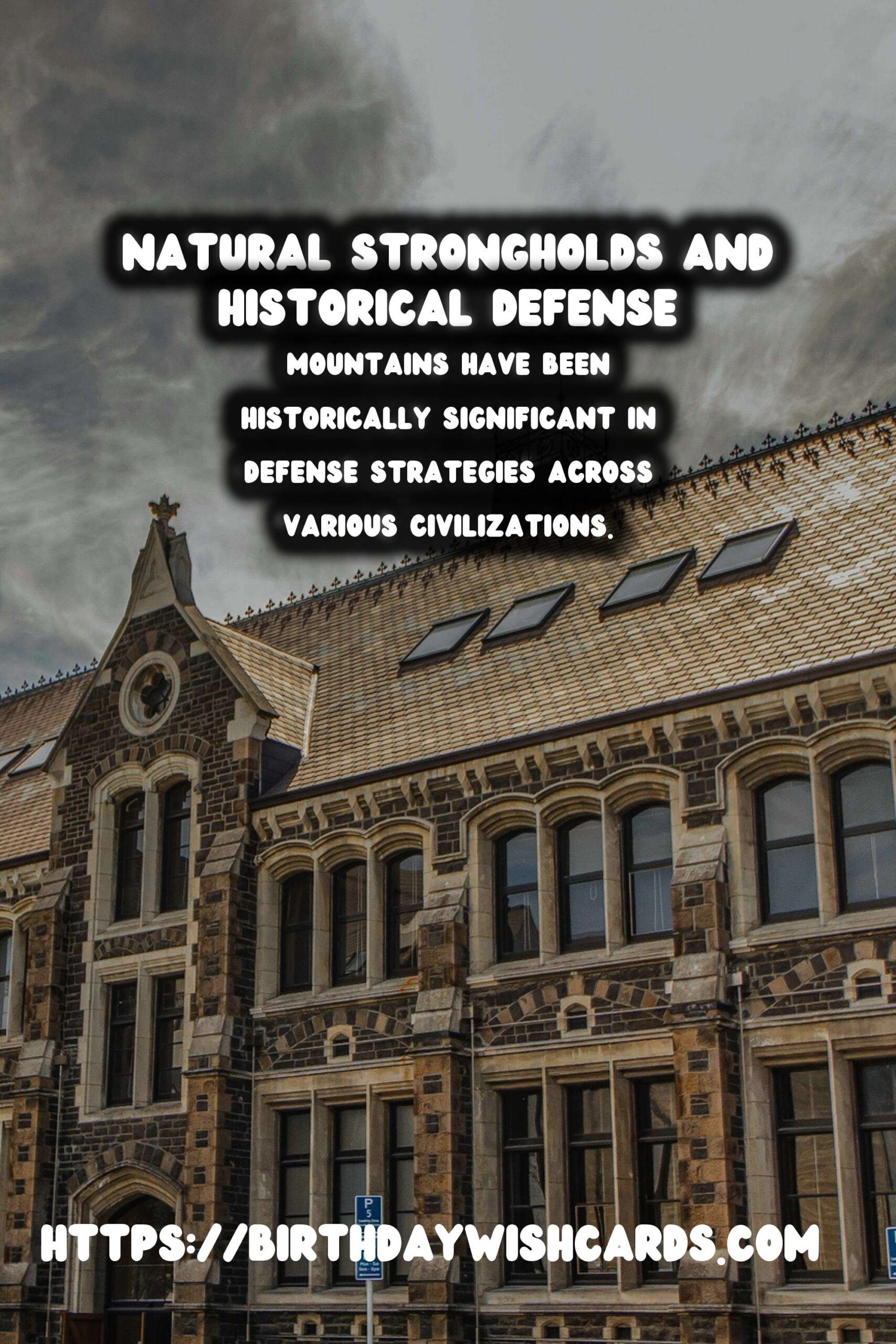

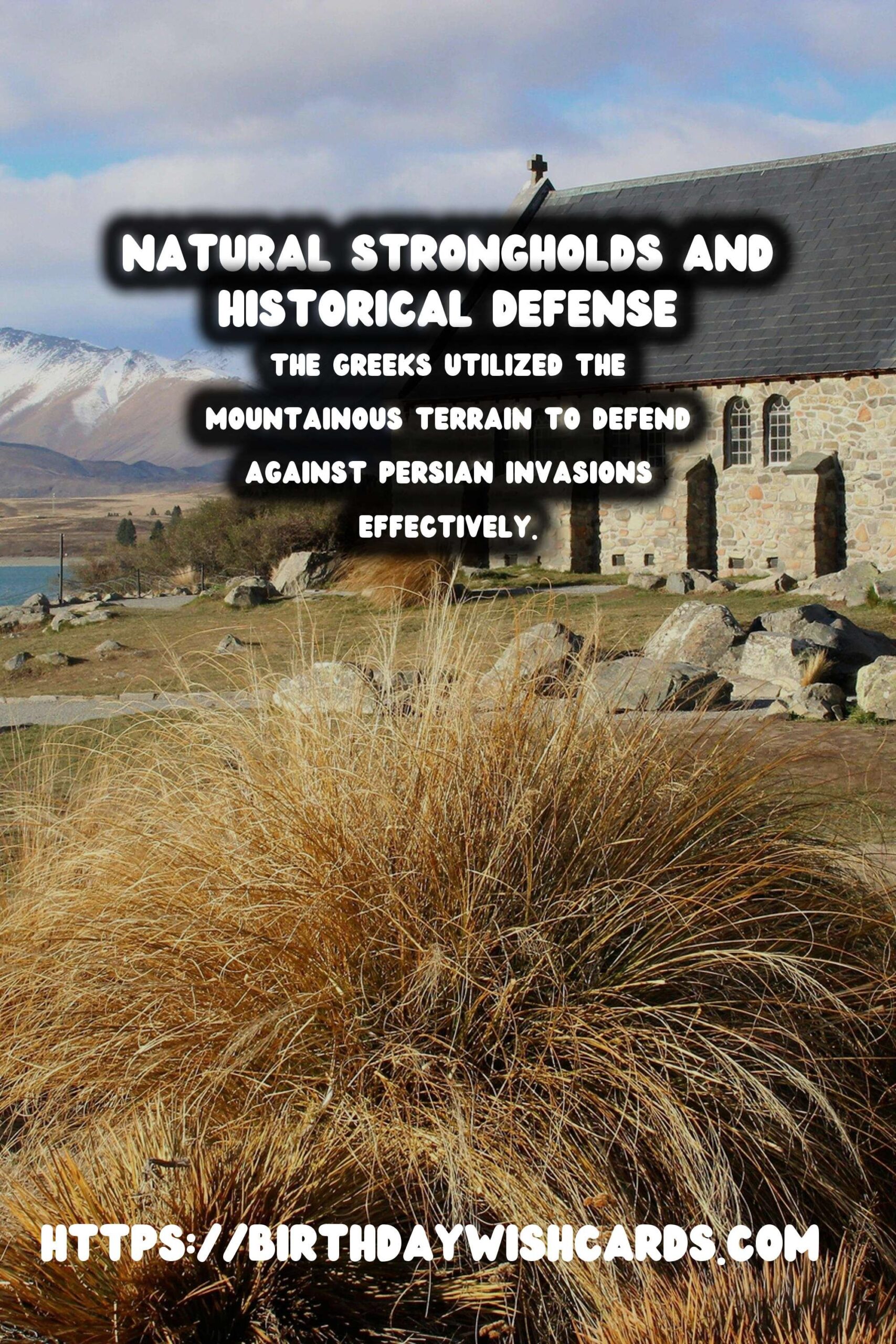
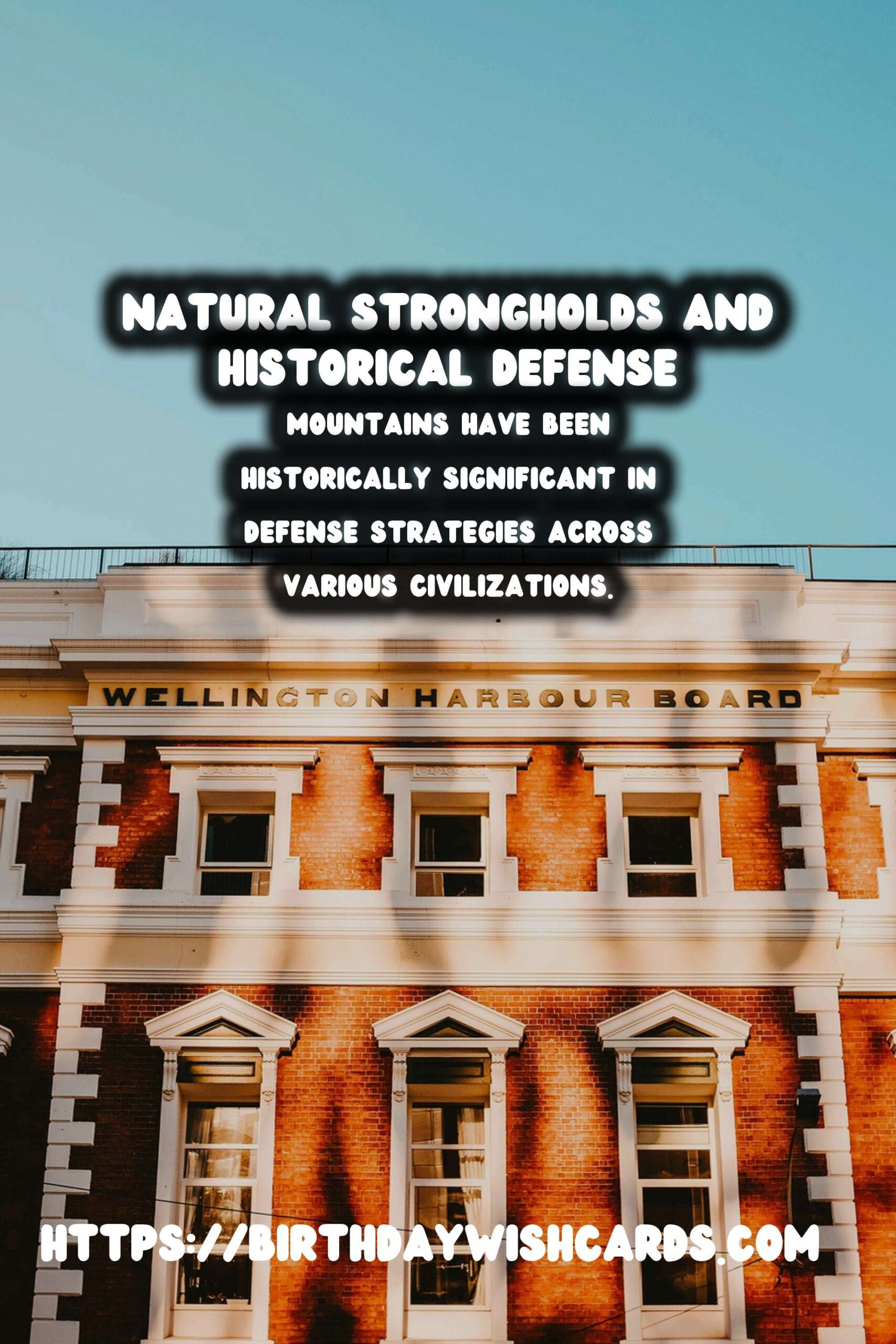


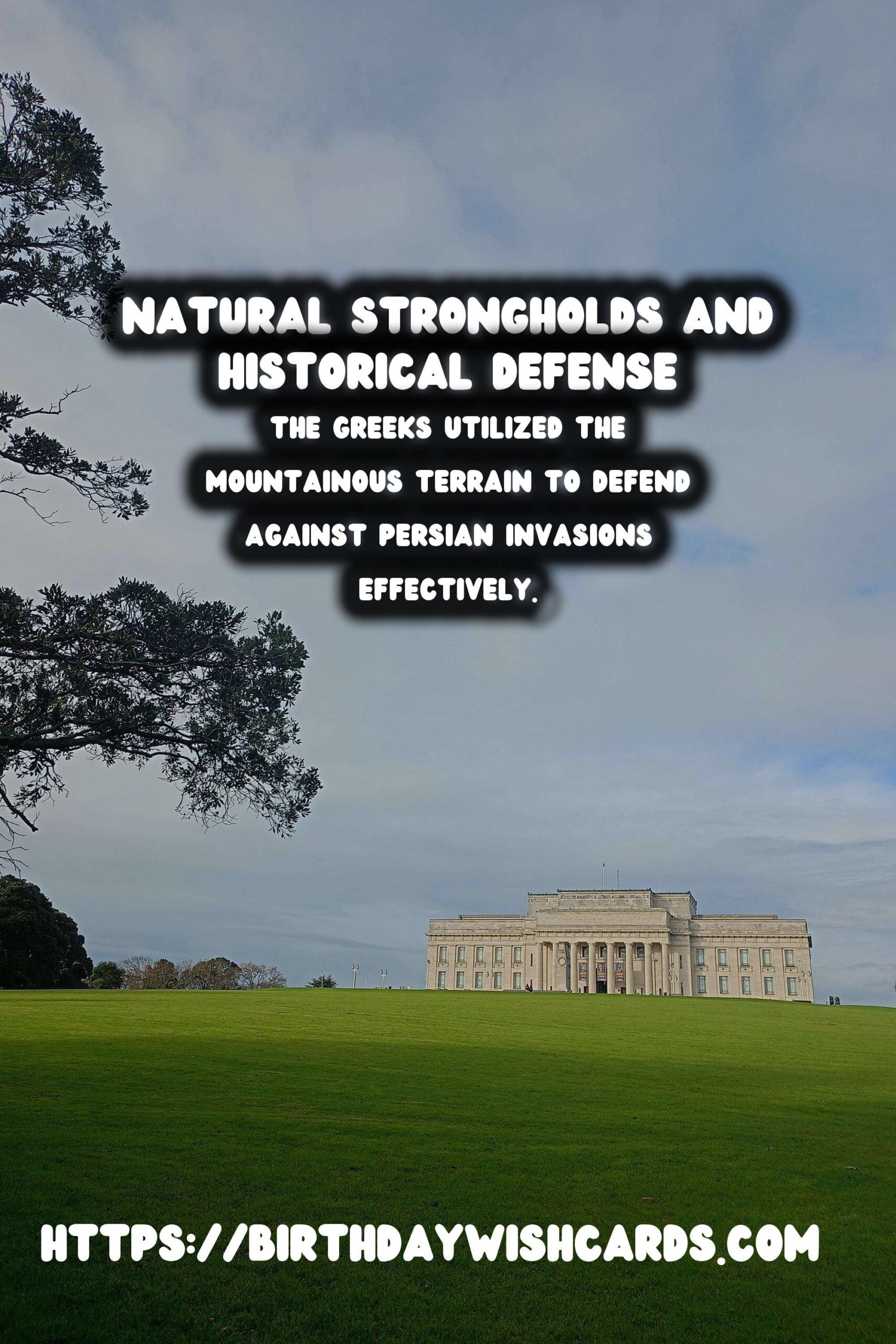
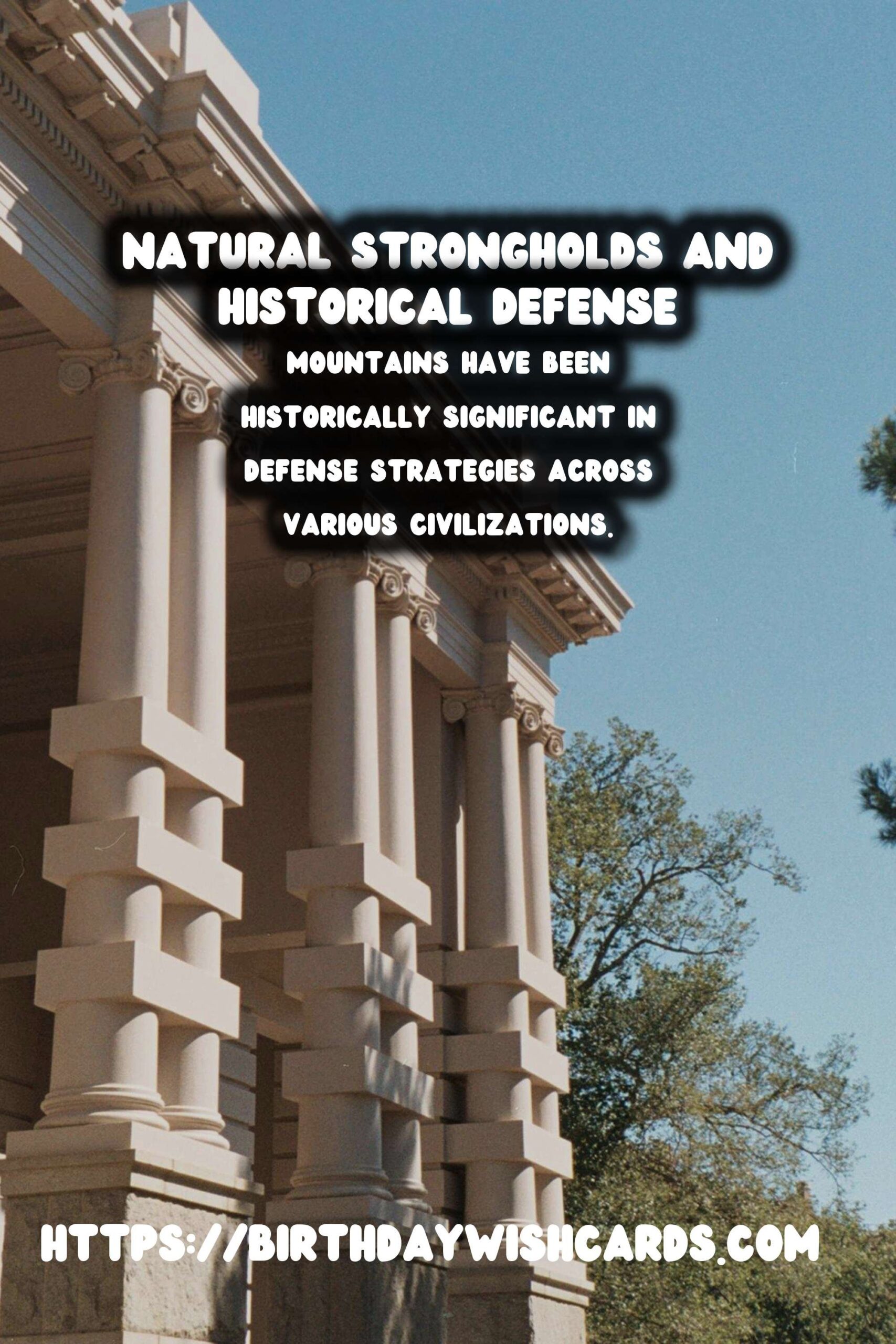
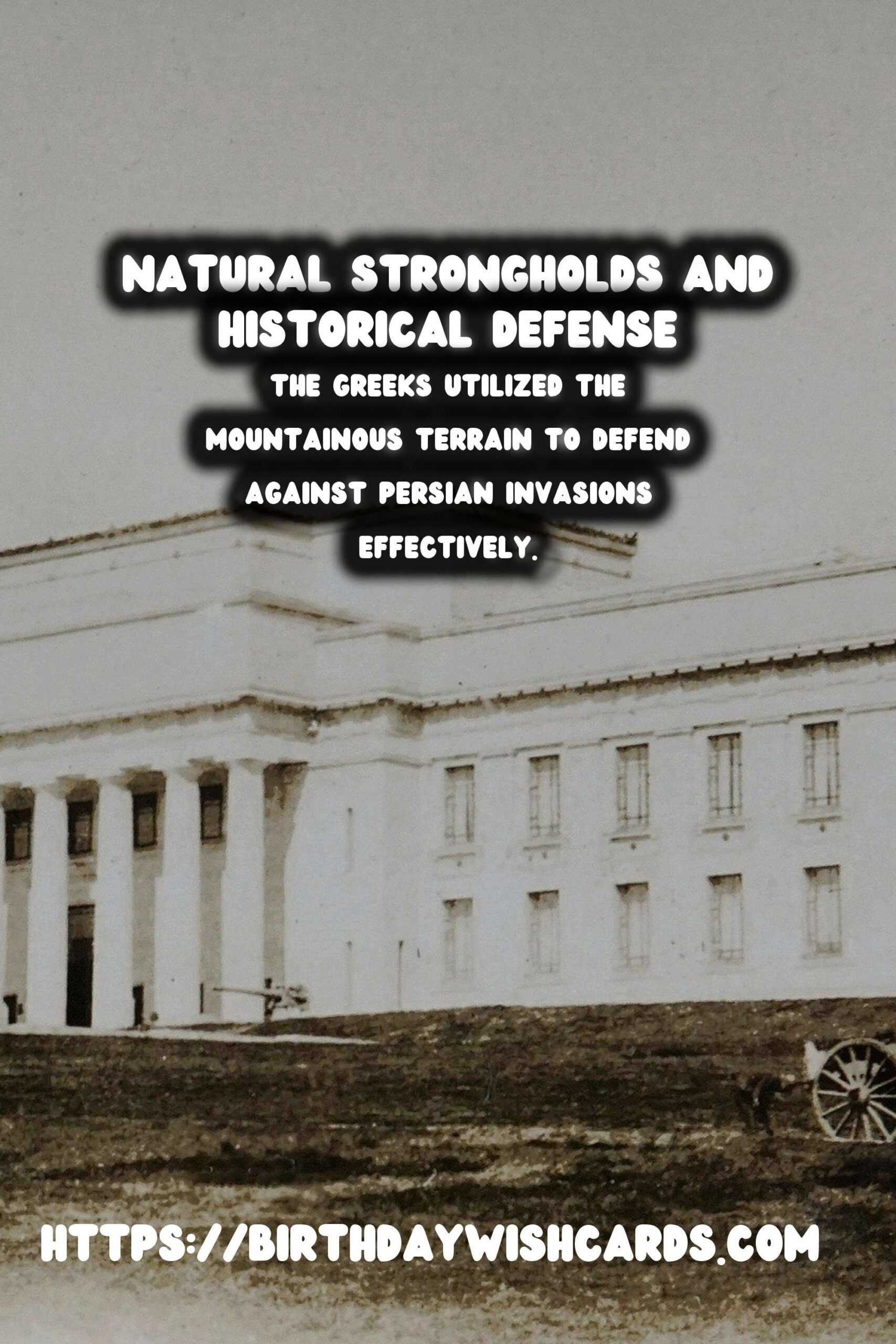
#MountainDefense #HistoricalWarfare



